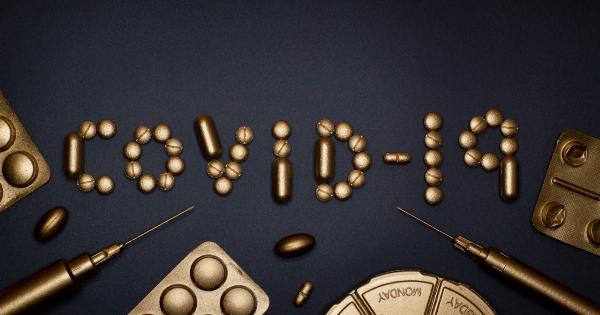Sperm are fascinating little cells with a lot of information to offer. Not only can they fertilize an egg and create a new life, but they can also reveal clues about a man’s overall health.
Here are some things sperm can tell us about a man’s well-being:.
1. Sperm count
The number of sperm a man produces can indicate his overall fertility. A healthy sperm count is considered to be between 15 million and 200 million sperm per milliliter of semen.
If a man has a low sperm count, it may be a sign of underlying health issues such as hormonal imbalances, infections, or genetic abnormalities.
2. Sperm motility
Motility refers to the ability of sperm to move through the female reproductive tract and reach the egg. A high percentage of motile sperm is essential for successful conception.
Sperm motility can be affected by a variety of factors such as inflammation, oxidative stress, and exposure to toxins.
3. Sperm morphology
Sperm morphology refers to the shape and size of sperm. Abnormal sperm morphology can indicate genetic defects or other health issues. Poor sperm morphology may also be linked to exposure to environmental toxins and poor nutrition.
4. Sperm DNA integrity
The DNA inside a man’s sperm is a key factor in creating healthy embryos and ensuring a successful pregnancy. Damage to sperm DNA can be caused by a variety of factors such as exposure to radiation or environmental toxins, infections, and aging.
Men with damaged sperm DNA may have a higher risk of infertility, miscarriage, and birth defects.
5. Semen volume
The volume of semen a man produces can be an indicator of his overall reproductive health. A low semen volume may be a sign of a hormonal imbalance, infection, or blockage in the reproductive tract.
Semen volume can also be affected by lifestyle factors such as smoking, alcohol consumption, and poor diet.
6. pH level
The pH level of semen can provide information about a man’s overall health. A normal pH level is between 7.2 and 7.8.
A low pH level may be a sign of infection or inflammation, while a high pH level can indicate the presence of alkaline substances such as urine in the semen. Abnormal pH levels can affect sperm motility and reduce their ability to fertilize an egg.
7. White blood cells
The presence of white blood cells in semen can be an indicator of infection or inflammation in the reproductive tract. Infections such as STDs can affect sperm count and motility and increase the risk of infertility.
Men with high levels of white blood cells in their semen may require medical treatment to address the underlying issue.
8. Hormone levels
Hormonal imbalances can affect a man’s sperm count, motility, and overall reproductive health.
A man’s semen can be tested for levels of hormones such as testosterone, luteinizing hormone, and follicle-stimulating hormone to determine if there are any underlying issues that need to be addressed.
9. Antisperm antibodies
Antisperm antibodies are proteins that can attach to sperm and impair their ability to fertilize an egg. These antibodies can be produced by the immune system in response to infection, injury, or other factors.
Men with high levels of antisperm antibodies may have difficulty conceiving and may require medical treatment to improve their chances of fertility.
10. Environmental toxins
Exposure to environmental toxins such as pesticides, lead, and mercury can affect a man’s overall health and reproductive function.
These toxins can damage sperm DNA, reduce sperm count and motility, and increase the risk of infertility and birth defects. Men who work in industries with high levels of exposure to toxins should consider taking steps to protect their reproductive health.































